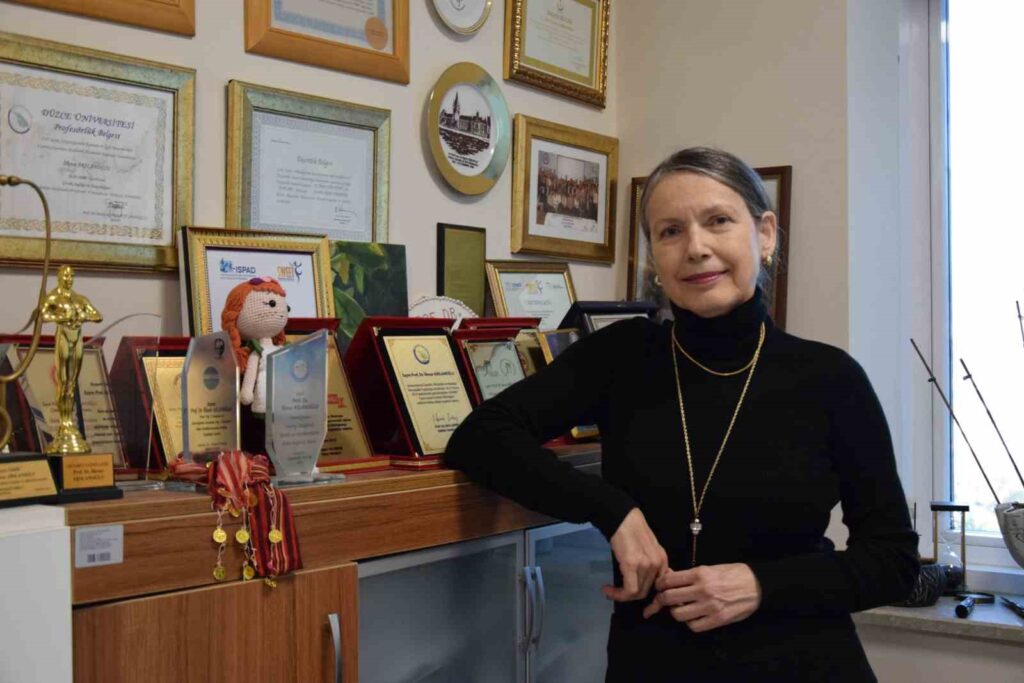Diabetes alarm in adolescents: “Increasingly rising”
DÜZCE (IHA) – Professor Dr. Ilknur Arslanoğlu, the Head of the Pediatric Endocrinology Department at Düzce University Medical Faculty, stated that the most common type of diabetes in childhood is Type 1 diabetes, which requires lifelong insulin use, while Type 2 diabetes…

DÜZCE (IHA) – Professor Dr. Ilknur Arslanoglu, Head of the Department of Pediatric Endocrinology at Duzce University Medical Faculty, stated that the most common type of diabetes seen in childhood is Type 1 diabetes, which requires lifelong insulin use, and although Type 2 diabetes is less common in children, it is increasingly seen in adolescents.
On the occasion of “November 14 World Diabetes Day,” Professor Dr. Arslanoglu made statements. He noted that the most common type of diabetes in childhood is Type 1 diabetes, which requires lifelong insulin use, and expressed that one of the main causes is genetic predisposition from birth, emphasizing that harmful environmental and lifestyle factors also facilitate the process.
Stressing that genetic predisposition to diabetes in children is inevitable, Professor Dr. Arslanoglu said, “However, deficiencies in Vitamin D, omega 3, and antioxidants, lack of nutrition, sleep, and exercise regulation, external stress factors, or the individual’s inability to cope with them, dirty air, and unnatural environments, excessive and unconscious hygiene can be counted among the reducible risks.”
“Type 2 diabetes is particularly increasing among adolescents”
Pointing out that Type 2 diabetes is less common in children but increasingly seen in adolescents, Professor Dr. Arslanoglu stated, “This type of diabetes is closely related to obesity, but obesity can negatively affect the immune system and increase the risk of Type 1 diabetes. Type 2 diabetes progresses more insidiously and can reach advanced stages without symptoms appearing, but if not delayed, it can be treated with lifestyle adjustments and oral medications without becoming insulin-dependent. Type 1 diabetes, on the other hand, progresses more rapidly and requires insulin even if lifestyle is managed. In cases where it has not progressed, a glucose tolerance test and a test showing the three-month average blood sugar known as hemoglobin A1c may be needed to make a decision. Additionally, the presence of sugar in the urine in a classic urine test, and if the condition has progressed, the presence of substances called ketones along with blood sugar are diagnostic. However, there are different types of insulin, and appropriate selections must be made for the individual. Furthermore, insulin pumps are important technological products that facilitate both the administration of insulin and its adjustment according to the body’s needs.”
“Support from the general environment is important in managing diabetes in children”
Professor Dr. Arslanoglu stated that diabetes management in children requires close cooperation between the family and the diabetes team. He noted that support from the general environment, especially school staff, is also important. “With this collaboration, the three pillars of diabetes management—insulin, nutrition, and exercise—must be maintained in harmony, and this harmony should be monitored through continuous blood sugar measurement. All of these should occur with a rich experience and support that does not diminish the child’s quality of life and joy of living. However, while doing this, they must be faster, more skillful, and more conscious than everyone else to catch up with their peers. The best examples of this are medical professors with diabetes since childhood, professional athletes, and successful diabetic parents who have had multiple children,” he said.
“We receive applications from every corner of the country”
Arslanoglu also provided information about the facilities and activities of the Duzce University Medical Faculty Children’s Diabetes Center. He noted that the Children’s Diabetes Center is one of the two members of the SWEET association, which certifies 130 centers worldwide in Turkey. “The vision of our center is to provide the most advanced pediatric diabetes care to every child who requests our services without exception, and while doing this, we strive to develop every method that will facilitate their lives with the most sensitive approaches. Since we receive applications from every corner of the country, it is not possible for us to be sufficient with routine service methods, and we continuously develop new methods through intense team communication. Among these are our 24-hour WhatsApp consultation groups, mobile events where we visit homes, schools, and regions, our camps, Zoom meetings, and the connections and training we conduct with schools, daycare centers, families, and social services, and family medicine practices,” he said.







